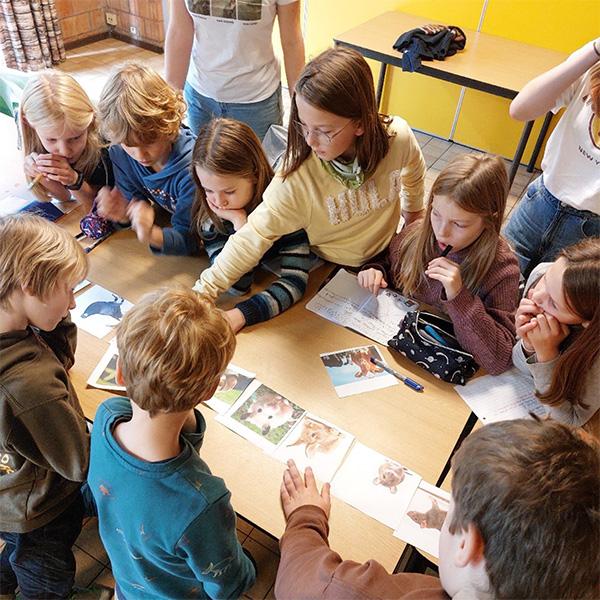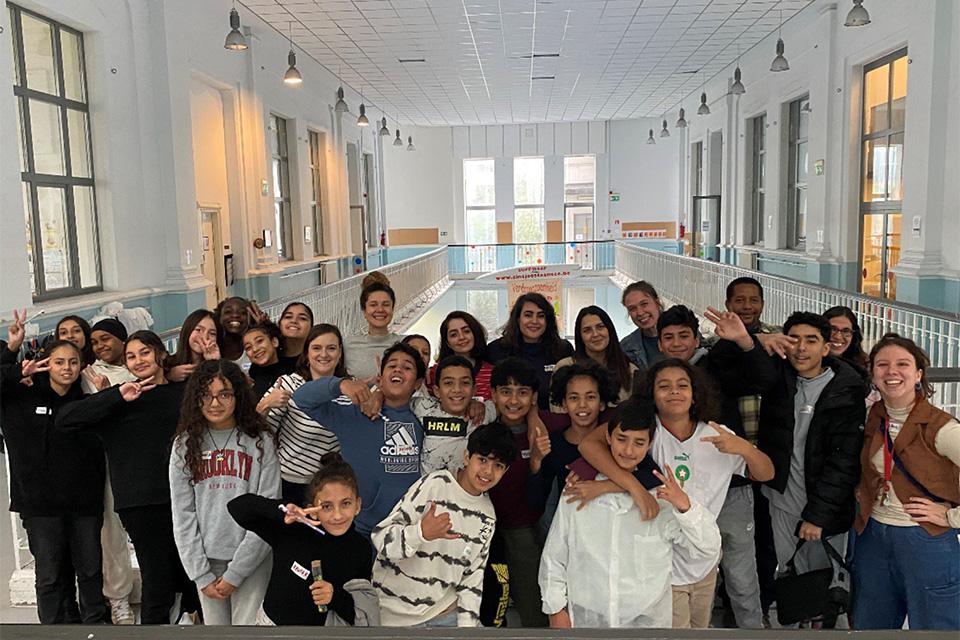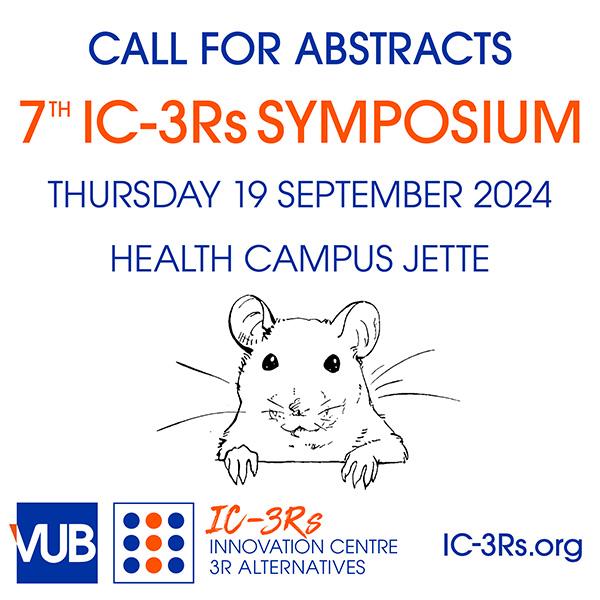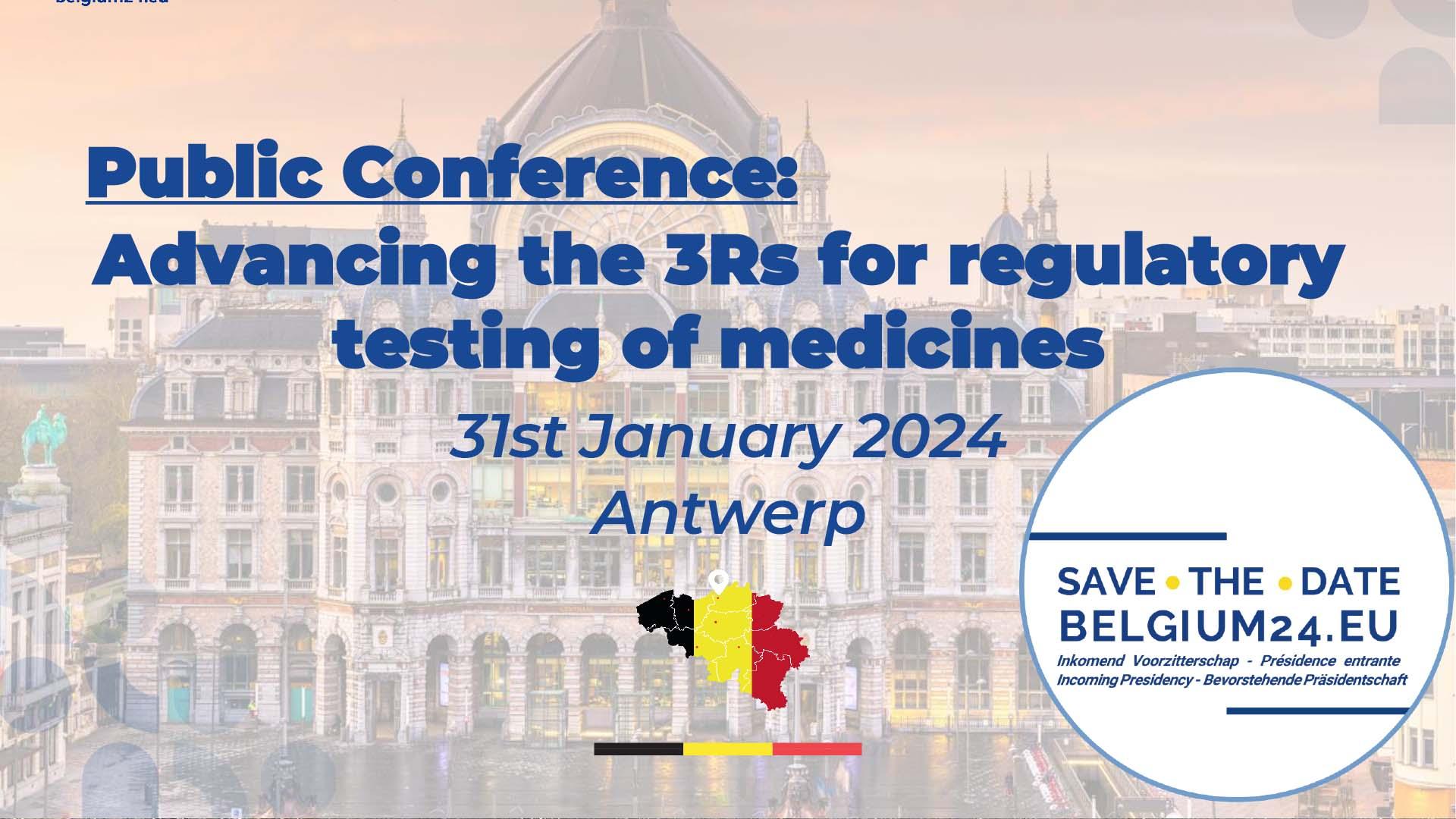IC-3Rs News
IC-3Rs workshop @Bekina VZW
by IC-3Rs

During the autumn holidays, IC-3Rs was invited to give a lecture on animal testing and the use of alternative methods in scientific research at the yearly autumn camp of Bekina VZW for gifted children (age 8-18). The numerous challenging questions posed by the children clearly illustrated their interest and enthusiasm to the topic. This lecture was rewarding for us, as the questions provoked interesting discussions among the scientist and the children.
IC-3Rs workshop @TADA atelier
by IC-3Rs

In September, we took part in the TADA (Toekomst Atelier De L’Avenir) weekend schooling program. TADA coaches young people (ages 10-14) from vulnerable backgrounds in Brussels and broaden their horizons through a variety of guest lectures on Saturdays. As invited experts, we introduced the students to the field of Pharmaceutical Sciences with a workshop focused on animal-free, alternative methods for drug safety testing.
Actionplan and Report on Animal Welfare in Flanders
by Animal Welfare Flanders
In 2021, Animal Welfare Flanders, in consultation with researchers and organisations, launched a project aimed at reducing animal testing in Flanders. Researchers provided information and insights on opportunities for reduction the number of laboratory animals during roundtable discussions and based on these discussions an action plan has been compiled. More than 20 different stakeholders from academia, industrial and governmental institutions proposed a concrete plan to reduce animal testing in their organization at the start of this project. The action plan has been finalized and a report on the progress of the actions described in the action plan has been published now. IC-3Rs had a prominent role in the realisation of the actions proposed by the VUB. The results and achievements of the action plan can be consulted via the report below.
IC-3Rs Call for Abstracts
by IC-3Rs

You are kindly invited to submit your abstract for a poster presentation at the 7th Annual IC-3Rs Symposium 2024. Posters will be displayed during the coffee and lunch break.
Abstract topics should focus on the 3Rs Principle in its broadest sense...
Educational Webinar on NAMs
by IC-3Rs
RE-Place is continuing its series of Educational Webinars aiming to promote the use and development of NAMs by putting the existing knowledge in the spotlight.
During this second Webinar of 2024, on the 28th of March from 4 to 5 pm CET, Dr. Karolien Bijnens and Martijn Heleven from the University of Hasselt will present their work on the planarians as an alternative in vivo model to assess developmental, neuro- and genotoxicity.
Participation is free of charge, but registration is mandatory. The webinars are accredited. Certificates of attendance will be available upon request.
Webinar series on the #4Rs
by IC-3Rs
IC-3Rs organizes a webinar series on the #4Rs (Replacement, Refinement, Reduction & Responsibility). 📆 Save the dates:
06/03: Join us for an enlightening session with Prof. Hugo Vankelecom, exploring human organoid models as alternatives to the traditional in vivo models with a specific focus on the reproductive system
17/04: Dr. Stéphanie De Vleeschauwer will clarify the severity classification in laboratory animal procedures offering invaluable insights into animal welfare enhancement
08/05: Dive into a thought-provoking discussion with Dr. Stef Aerts on the role of researchers' responsibility in animal experimentation, emphasizing ethical practices
12/06: Concluding our webinar series, Prof. Sophie Hernot will illuminate the significance of retrospective analysis in driving future advancements and refining animal experiments
Ready to join our webinars? Secure your spot by filling out the registration form via link below, and you will receive access to each webinar a few days prior to the event.
We can't wait to see you there! 🐭
Kick-off Educational Webinar Series 2024
by RE-Place
RE-Place is continuing its series of Educational Webinars aiming to promote the use and development of NAMs by putting the existing knowledge in the spotlight. During this first Webinar of 2024, on the 15th of February from 4 to 5 pm CET, we will zoom in on the use of organoids in research and drug development. Prof. Dr. Christophe Deben (UAntwerp) will present his work on advancing High-Throughput Organoid Drug Screening: Automated Live-Cell Imaging and the Orbits Image and Data Analysis Pipeline, and Dr. Colinda Scheele (VIB-KU Leuven) will deep dive in breast organoids to study tissue development and the different steps of tumorigenesis.
All webinars are free of charge, but registration is mandatory
Interview on 3Rs Principle
by Fonds voor Wetenschappelijk Onderzoek (FWO)
The ‘’Fonds voor Wetenschappelijk Onderzoek” (FWO) has recently interviewed Em. Prof. Vera Rogiers from the Vrije Universiteit Brussel on the 3Rs Principle, the replacement of lab animals and innovations in the field of alternative methods. 👉Take a look at the video or listen to the podcast (below).
Het “Fonds voor Wetenschappelijk Onderzoek” (FWO) heeft onlangs Em. Vera Rogiers van de Vrije Universiteit Brussel geïnterviewd over het 3V-principe, de vervanging van proefdieren en innovaties op het gebied van alternatieve methoden. 👉Kijk naar de video of beluister de podcast (hieronder).
Study day focused on Advancing the 3Rs for regulatory testing of medicines
by FAGG - Federaal Agentschap voor Geneesmiddelen en Gezondheidsproducten

The FAGG - Federaal Agentschap voor Geneesmiddelen en Gezondheidsproducten is organizing a study day focused on 'Advancing the 3Rs for regulatory testing of medicines' on the 31st of January.
Location: Flanders Meeting and Convention Center Antwerp.
